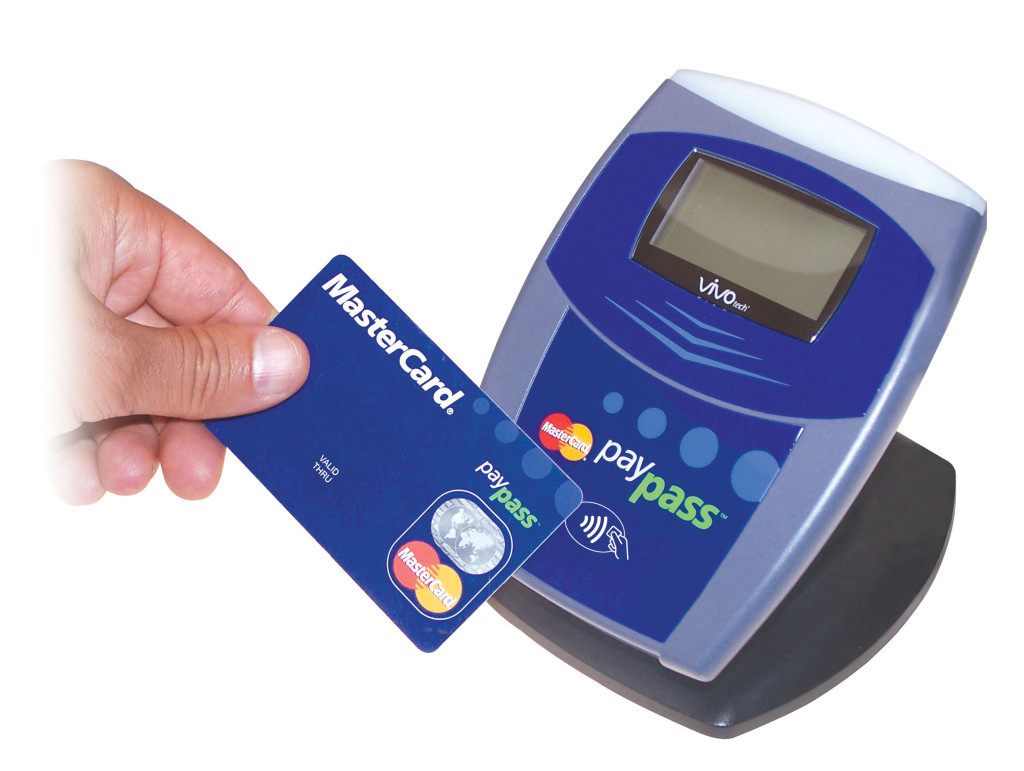The desire for quick payment methods leaves us vulnerable
By Aidan Mouellic, Staff Writer
I’m consistently amazed by how lazy and anti-social we are here in North America. We do everything we can to minimize human interaction—whether on purpose or as a side effect of our rapidly advancing technologies, I don’t know. But on New Year’s Day, I was recovering from the previous night’s festivities by lying on a couch and ordering a movie on Video On Demand. I used my smartphone to order three pizzas on Pizza Hut’s app, and then my friends did something very kind and retro: they paid the pizza deliverer in cash before I managed to get off the couch.
How is that kind and retro? Well, other people paying for food that you ordered is very kind, and using cash to pay for things is fast becoming retro. The prominent rise of debit card and credit card—plastic payments—occurred years ago, but now a new player has entered the payment-method game: tap-and-pay.
Many new credit cards now come equipped with Radio-Frequency Identification (RFID) chips built into the cards, which allows for tap-and-pay actions to be completed at many businesses. Credit cards that allow this function bypass the need to input a Personal Identification Number (PIN) when completing a purchase, and this is a major security risk. Now, if you lose your wallet or if someone is crafty enough to steal it, they can just pull out your credit card and tap around town, buying gas, food, or Venti soy lattes.
Many banks provide debit and credit cards fitted with chips that make Interac and credit fraud more of a challenge to those who do that sort of thing. These cards require users to type in a PIN when completing a credit card purchase; this increases security, compared with just signing a receipt.
Why then do we have credit cards that completely disregard security, sidestepping signatures and PINs? Is it because spending an extra moment at the till typing in a PIN requires too much effort? I don’t know, but I do know that I’d rather spend a few extra seconds typing in a four-digit number than feel the wrath of someone going on a tap-and-pay spree with my card.
To make matters worse, most smartphones now come with RFID or Near Field Communication (NFC) chips built in that allow the phone to become a virtual wallet. A solid move for lazy convenience at the checkout, but a terrible move if you want to boost your financial security. If you lose your RFID- or NFC-enabled phone and it isn’t secure, then someone could take advantage of that.
Technology is amazing, and being able to pay for something by swiping a piece of plastic in the air is really cool; but it compromises our financial security if thieves get hold of our cards or phones. Also, being able to buy things with such ease might make us not think twice about spending. Staying on budget is hard for students, and making it even easier to go into debt is perhaps not the best move. The on-screen prompts and waiting at the till have given me the time to rethink my purchases before; perhaps tap-and-pay is in the best interests of the banks, then.

